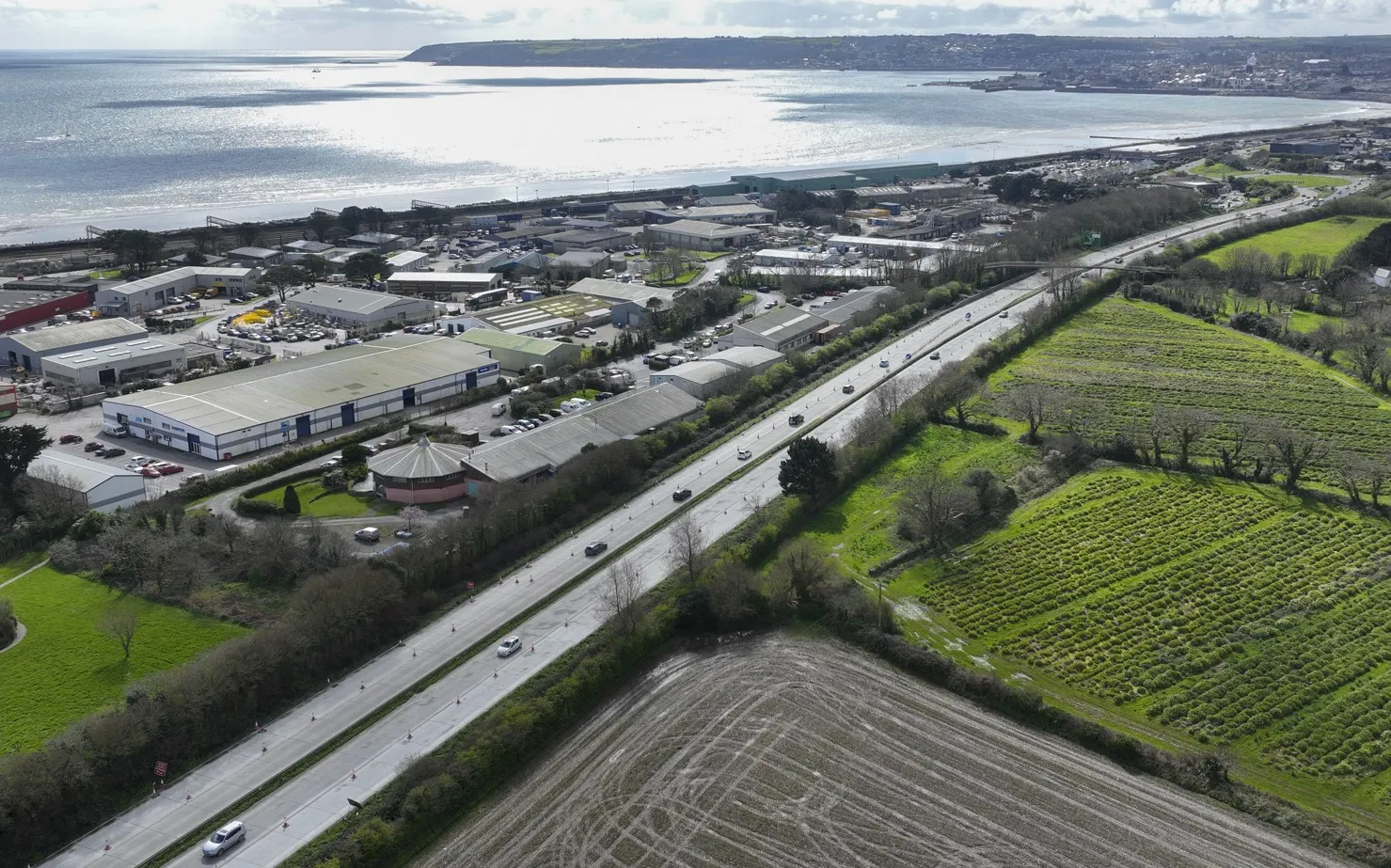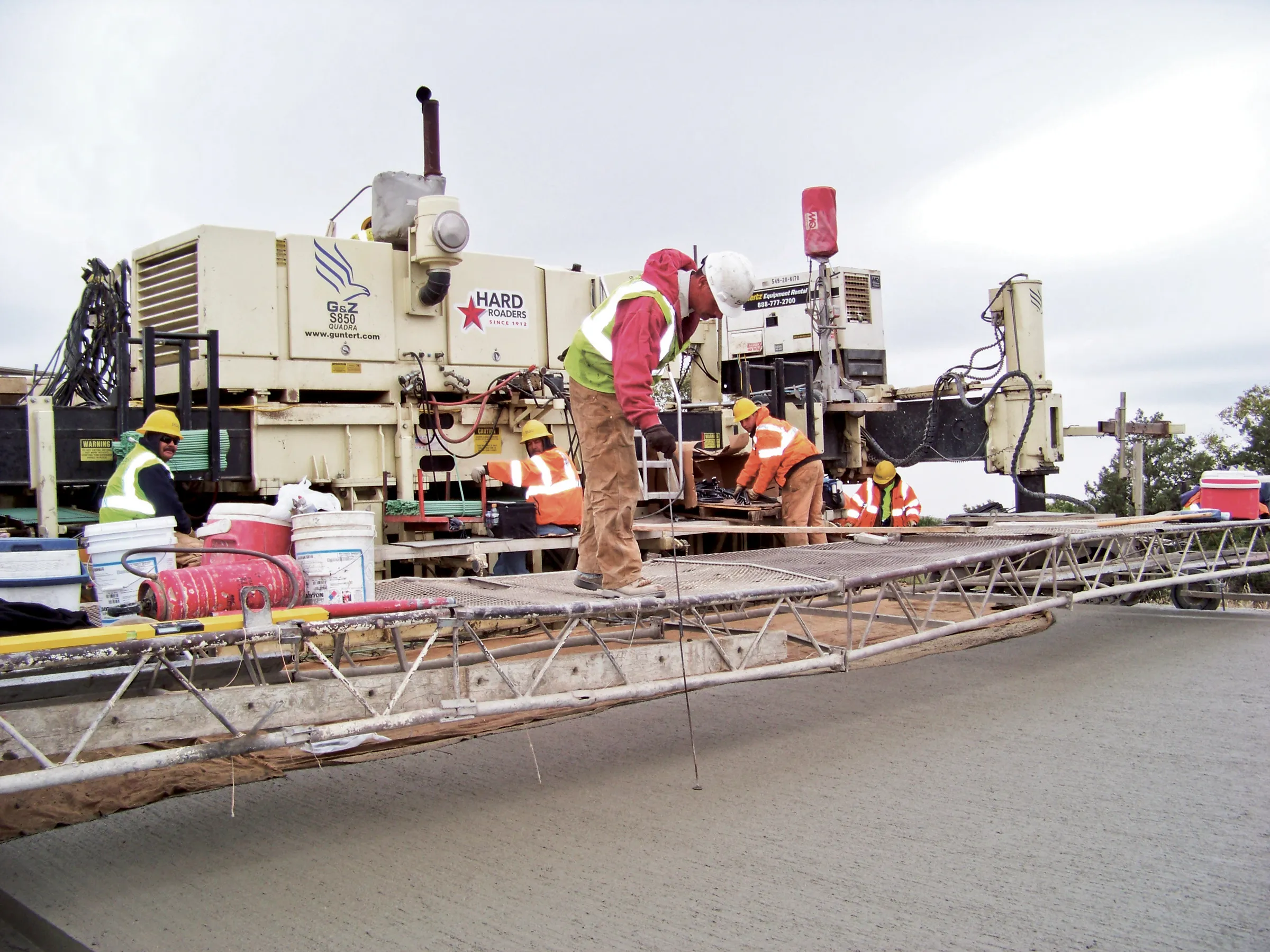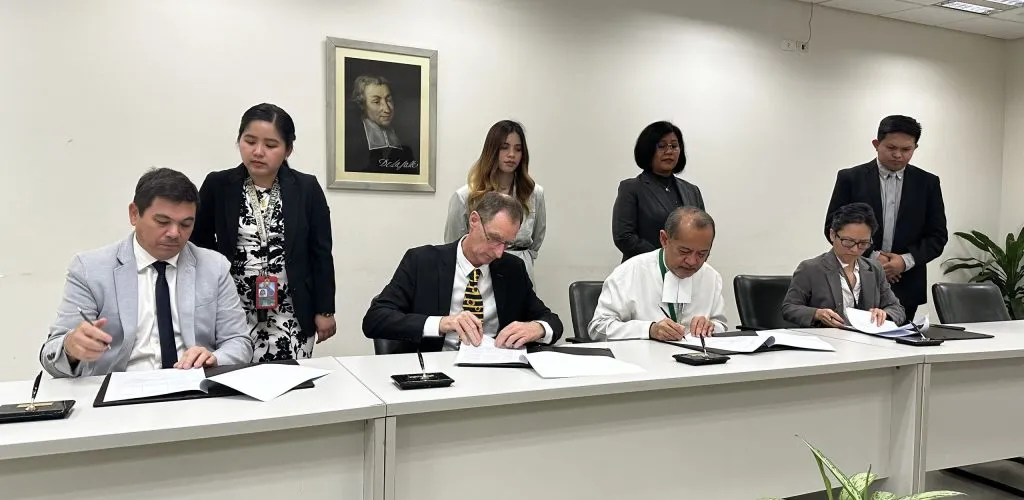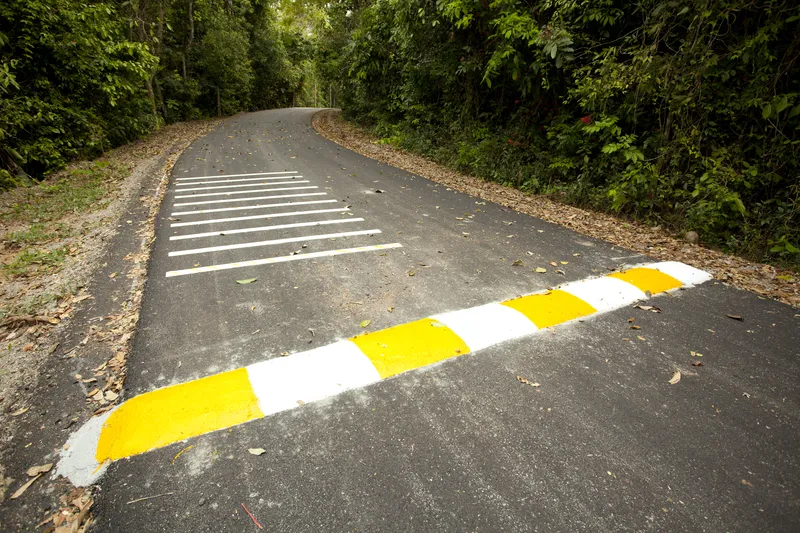
A section of the A30 in Cornwall has become one of the first in the UK to trial a novel grade of concrete that reduces road noise.
In a National Highways trial, the specialist technique has been used by Tarmac, Wirtgen and Atmo Technology and has successfully reduced noise by up to seven decibels. In a single-pass process treatment, grooves are created into the existing concrete pavement while grinding is applied onto raised ‘turrets’ on the surface to add texture and improved skid resistance.
Road noise is reduced due to a smaller surface area contact between vehicle tyres and the surface, with sound further absorbed by the grooves in the pavement. Around 600km (4%) of the strategic road network in the UK is comprised of concrete roads, most of which were built in the 1970s and 1980s.
Diamond fine milling is traditionally used for concrete resurfacing but this process removes around 3mm of road material with each treatment and delivers an expected life of five years with each intervention. All roads are designed to last up to 40 years before replacement is needed. The new application can deliver 10-15 years of life before intervention is required, therefore significantly improving the whole-life cost benefit of the asset with less intervention needed across the total lifecycle.
The new approach, which is part of Tarmac’s Next Generation Concrete Solutions (NGCS) portfolio, does not cause any damage to joints in the pavement reducing additional maintenance costs. Nick Angelou, regional contracting director at Tarmac commented: “This significant trial has helped to develop a solution for concrete roads which can reduce noise for neighbouring communities as well as extend the lifecycle of the asset to deliver financial and environmental savings by eliminating the need for earlier intervention.”
Nick Knorr, head of the National Concrete Roads Programme said: “This trial was part of our Concrete Roads Programme which will ultimately replace all of our existing legacy concrete roads. Achieving this goal will take time and significant investment, so it is essential that we find cost effective ways of extending the life of those still in use until they can be replaced.
“NGCS is a promising technique and we have seen positive results related to noise reduction and ride quality. Ongoing monitoring and future trials will confirm its full impact on asset life extension, but the initial observations are encouraging.”
The trial, took place over a 1.5km section of the eastbound A30 near Penzance saw five surface profiles tested with differing groove dimensions and arrangements. Atmo Technology developed a mobile sound monitoring device to assess and record noise levels generated by the different surface profiles.
All five profiles delivered a significant road noise reduction and Tarmac will continue to work with National Highways to establish the preferred profile for future projects.
Topoff, a specialist Belgian paving company worked in partnership with construction equipment supplier Wirtgen to develop and adapt a machine that can create the grind and groove of the concrete surface in a single pass. As the only one of its kind in the world the machine can resurface a width of 1.85m, ensuring a lane width is resurfaced in only two passes to boost productivity by 150% compared to other approaches.









